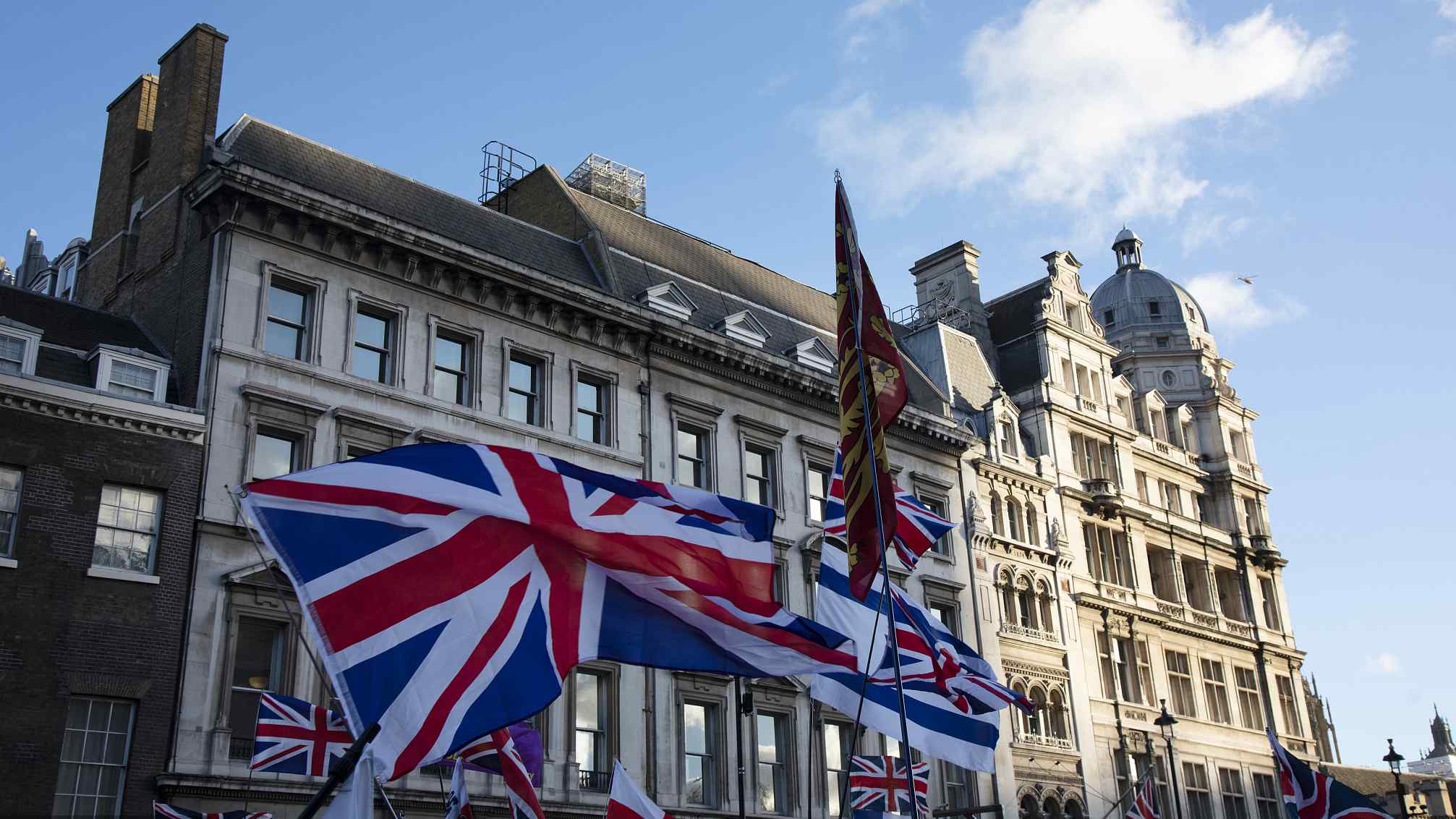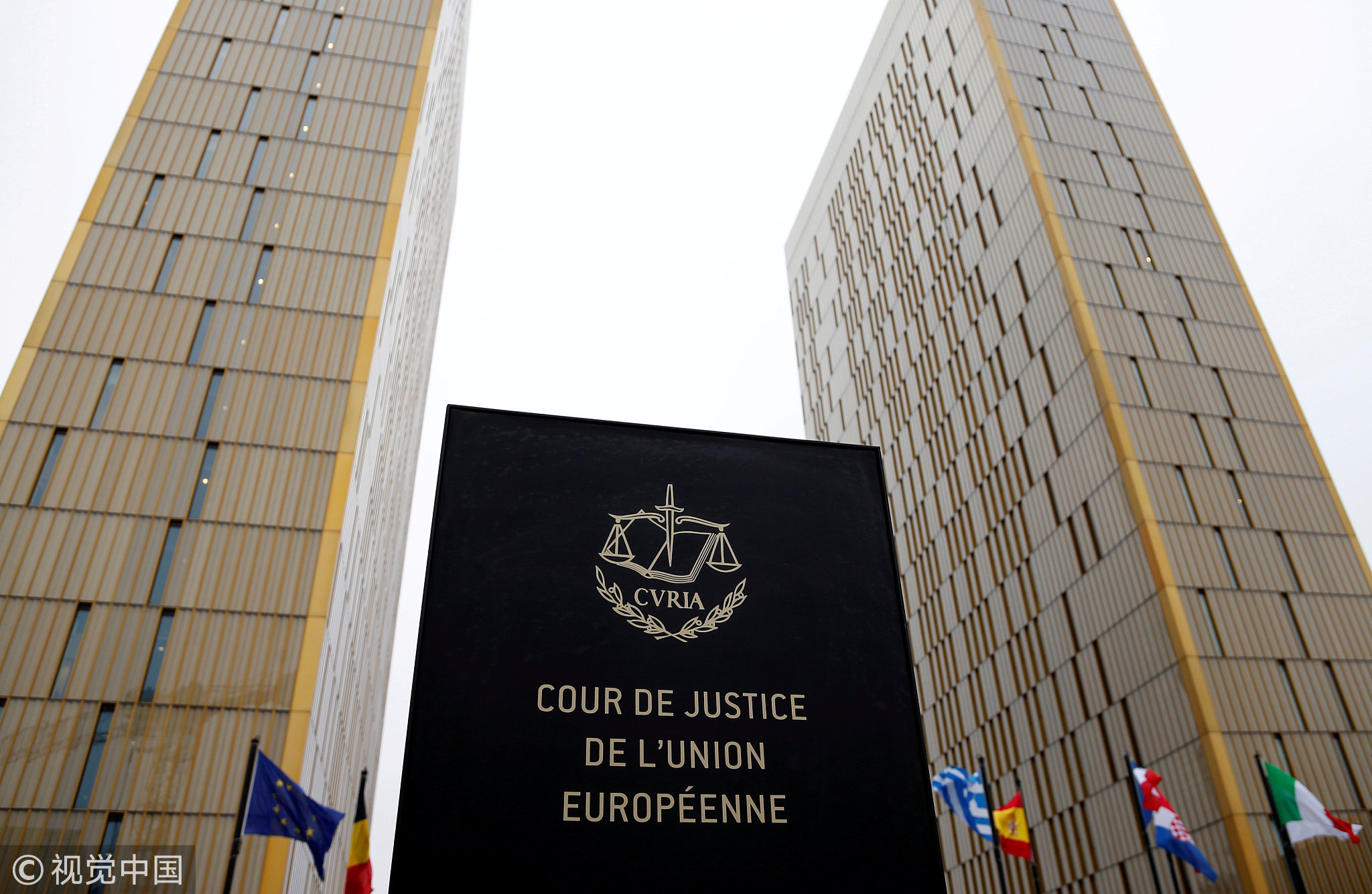
Politics
16:25, 10-Dec-2018
UK can unilaterally halt Brexit, EU's top court rules
Updated
15:21, 13-Dec-2018
CGTN

The European Court of Justice, European Union's top court, ruled on Monday that the British government can unilaterally reverse its decision to leave the bloc, without needing approval from every other member state.
"The United Kingdom is free to revoke unilaterally the notification of its intention to withdraw from the EU," said the court in its judgment.
"Such a revocation, decided in accordance with its own national constitutional requirements, would have the effect that the United Kingdom remains in the EU under terms that are unchanged as regards its status as a Member State," the court ruled.

The towers of the European Court of Justice are seen in Luxembourg. /VCG Photo
The towers of the European Court of Justice are seen in Luxembourg. /VCG Photo
British Prime Minister Theresa May has called a meeting of ministers and a decision on whether to pull parliament's vote on her Brexit deal is imminent, said the political editor of UK newspaper the Sun.
"The PM has called together all her senior aides for a meeting on the Meaningful Vote in No10 now," Tom Newton Dunn said on Twitter. "A decision on whether to pull it appears imminent."
The EU court's ruling comes just a day before the British parliament votes on the Brexit deal agreed by May with the EU last month.
Read more:

Pro-Brexit protesters take part in a march organized by UKIP and far right activist Tommy Robinson in central London, United Kingdom, December 9, 2018. /VCG Photo
Pro-Brexit protesters take part in a march organized by UKIP and far right activist Tommy Robinson in central London, United Kingdom, December 9, 2018. /VCG Photo
The timing of the ruling was not a coincidence: the court said it had ruled with unprecedented haste to ensure that British lawmakers would understand their options.
May's government said the ruling means nothing because it has no intention of reversing its decision to leave the EU on March 29. But critics of her deal say the ruling provides options – either to delay Brexit and renegotiate withdrawal terms, or cancel it if British voters change their minds.
Arriving to meet EU counterparts in Brussels, British Foreign Secretary Jeremy Hunt called the ruling “irrelevant.” The majority of British voters, who decided in a 2016 referendum to leave the EU, would be “shocked and very angry” if Brexit were halted.
Michael Gove, the most prominent Brexit campaigner in the British government, said the ruling “doesn't alter either the referendum vote or the clear intention of the government to leave on March 29.”
"We don't want to stay in the EU,” Gove, who serves as environment minister, told BBC radio. “We voted very clearly. 17.4 million people sent a clear message that we wanted to leave the European Union and that also means leaving the jurisdiction of the European Court of Justice.
British newspapers have reported that May could delay the December 11 vote on her deal. The Northern Irish party which props up her government has suggested she should dash to Brussels to clinch better terms. The EU says the agreement is the best it can offer and its substance cannot be changed.
Gove said the vote would go ahead as planned. Current forecasts indicate May's deal will be defeated, a step that would thrust the government's Brexit plans into confusion.
(With inputs from Reuters)

SITEMAP
Copyright © 2018 CGTN. Beijing ICP prepared NO.16065310-3
Copyright © 2018 CGTN. Beijing ICP prepared NO.16065310-3